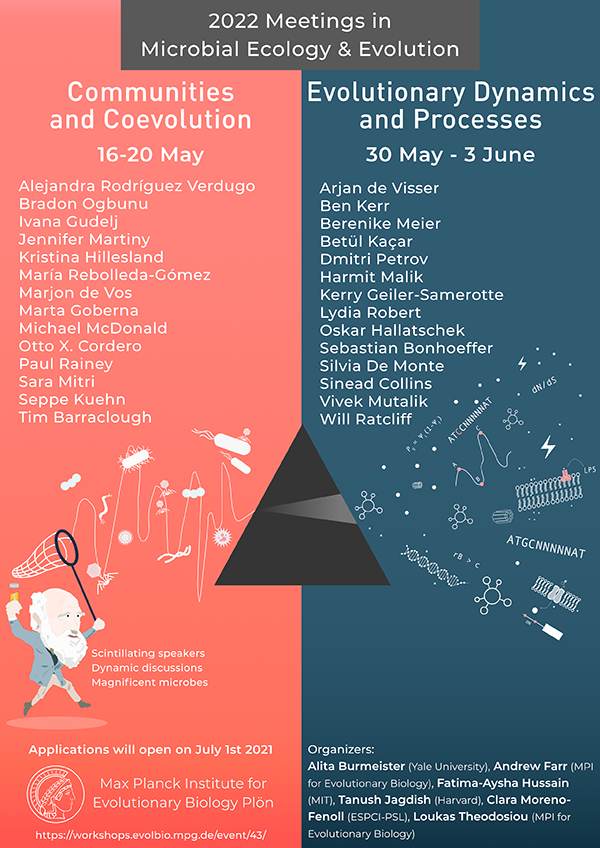Speaker
Description
Duhita G. Sant 1, Aysha L. Sezmis 1, Laura C. Woods 1 and Mike J. McDonald1* 1 School of Biological Sciences, Monash University, Monash, Australia * Correspondence should be addressed to: mike.mcdonald@monash.edu
Microbial communities comprised of many interacting species sustain all ecosystems and are essential for life. A major goal is to be able to intervene when microbiomes become dysfunctional. Phages have been recognized as potential tool for the deliberate modification of microbial communities. While the co-evolutionary dynamics of phage and their bacterial hosts are well studied, the impact of introducing a phage into a microbial community remains an open question. Here we propagated experimental populations of the T7-like bacteriophage øJB01 and its host Escherichia coli EPEC E2348/69 for 20 days in conditions where the phage and host co-evolved, or where only the phage was permitted to evolve, and then tested the capacity for the evolved phage to eradicate the ancestral host. We found that these two evolution treatments have trade-offs, with static-host phage evolving high infectivity and low host range while the evolving-host phage evolved relatively low infectivity with an expanded host range. Phage populations from both of these evolution treatments were equally better at repressing growth of focal host EPEC, however evolution of phage resistance was observed within 8 to 10 hours. Next, we tested the capacity of evolved phage populations to suppress the growth of the target host when present in a model microbial community of 8 strains of E. coli. We found that the phages can cause alterations in the community ecology and by tracking the frequency of the target host using amplicon sequencing and qPCR, we saw that the growth of the target host was strongly suppressed when phage was added in a healthy microbiota. Moreover, evolved phages could also perturb the frequency of a broad range of E. coli strains present in the community. We are speculating that the presence of other bacterial strains suppressed the evolution of phage resistance. Our results show that the context of the microbial community should be taken into account when using phage to modify microbiota.

